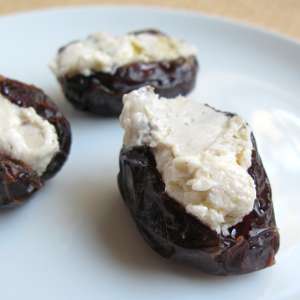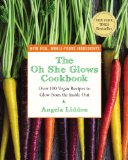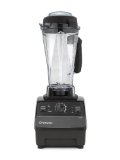I’ve noticed a bit of debate springing up recently about using the term “vegan” vs “plant-based”.
I’ve even noticed my own tendency to use “plant-based”, or even “whole food plant based” instead of “vegan”, even though there may not be much of a difference between the two.
Let’s take a closer look at these two diets and lifestyles and see if we can figure out once and for all whether vegan is the same as plant based, or not.
- What is the difference between a vegan and plant based diet?
- Is there really a difference between vegan and plant based?
- Can you be both vegan and plant based?
- So which do I eat: a vegan, plant based or whole food plant based diet?
- Quiz: What kind of vegan are you?
What is the difference between a vegan and plant based diet?
Although both vegan and plant based diets include a lot of fruits, vegetables, nuts, seeds and grains, there are some subtle but important differences.
A vegan diet is one that excludes all animal products in any form, whereas a plant-based diet focuses heavily on foods that come from plants, but may include small amounts of animal foods.
What vegan means
The term “vegan” was coined in the early half of the 1900’s as a variation of the term “vegetarian”, to describe someone who eliminates all animal products from their diet for ethical reasons.
Over time, the term has come to more generally describe anyone who eliminates animal foods for any reason, whether that’s for health, environmental reasons or animal welfare.
The word “vegan” also carries with it more than just a way of eating, as a result of its origins, and is often used to indicate someone with a strong belief in the importance of animal welfare.
This traditional use of the word describes someone who refuses to buy or use products such as leather clothing and shoes, beeswax candles and cosmetics and other things that include animal products.
Such “ethical vegans” may also attend animal protests, and support organisations calling for improvements to animal rights.
Of course, not everyone who considers themself a vegan shares these beliefs or characteristics, which may be why the alternative phrase “plant based” emerged.
A plant-based diet
Someone who eats a plant-based diet is mainly consuming foods that come from plants, such as vegetables, fruit, grains, legumes, nuts and seeds.
Many people who consider themselves “plant based” are in fact eating a vegan diet, that includes zero animal products, but their reasons for eating this way are usually not about the ethics of animal treatment.
Most people use the term “plant based” to refer to a 100% vegan diet, although there is nothing in the definition that precludes eating animal products.
So some people who eat a plant based diet may consume small amounts of animal products, either consciously or unintentionally, and not be overly concerned about it.
Because many people who choose to adopt a plant based diet are doing it for health reasons, eating small amounts of animal products is unlikely to cause any problems.
What about a whole food plant-based diet?
There’s another variation of the planet based diet which is referred to as a whole food plant based (WFPB) diet.
The whole food plant based diet – apart from being a bit of a mouthful – takes the plant based diet one step further, and eliminates as much processed food as possible.
Again, like the plant based diet, it’s not an all or nothing thing, just a focus on eating primarily unprocessed foods that originated from plants.
This generally means excluding things like extracted oils, refined flours, processed sugars and fractionated foods like white rice.
This becomes especially relevant when considering some modern vegan foods that are highly processed and contain little to no nutritional value, because going vegan and relying heavily on those foods would be incredibly unhealthy.
The idea behind the whole food plant based diet is to maximise nutrient density in every meal and mouthful, by leaving foods as close to their original form as possible.
Is there really a difference between vegan and plant based?
Although it may seem like splitting hairs (vegan ones, of course), the subtle differences between the terms become important in certain situations, because they can tell you something about what someone is willing to eat.
And to complicate things further, there are other diets and terms being used to describe people’s eating choices – like vegetarian and flexitarian – which can make it very confusing if you’re new to all of this.
To make the difference very clear, let’s look at some of the key things that each main group would or would not care about.
Not everyone agrees on these definitions exactly, so what one person means by “plant based” might be different to the next person.
In the end it’s just safest to ask what someone means by the term to avoid feeding (or giving them) something that contradicts their personal lifestyle choices.
Can you be both vegan and plant based?
Absolutely yes! And it’s actually quite common.
If you eat only plant-derived foods, and have eliminated all animal products from your diet, then you’re eating both a plant-based and vegan diet at the same time.
Looking back, I realise that I started with a plant based diet, transitioned to a vegan diet, and am now working on eating a completely whole food plant based and vegan diet.
And as a side-effect, I notice that the longer I eat plant based, the less keen I am to support anything that reduces the well-being of animals. Fascinating!
Other people do it the other way, starting on a vegan lifestyle for ethical reasons, and then transition to more of a whole food plant based diet for their health.
And that’s the great thing about vegan and plant based eating – there are so many different ways to approach it that you’re sure to find a way that works for you.
So which do I eat: a vegan, plant based or whole food plant based diet?
It’s funny, but I struggle with this confusion a bit myself sometimes.
I am quite happy to say that I do not eat animal products, which would make me a vegan.
But I don’t really do it for the ethics, I do it for my health, so does that make me plant based?
And I’m also constantly trying to reduce the amount of processed food in my diet and in my recipes, so does that make me whole food plant based?
I even have periods where I will eat primarily raw vegan dishes, which is the ultimate form of whole food plant based eating, where as many nutrients as possible are preserved through the absence of high temperatures while preparing food.
And when I do eat animal products these days, I feel physically worse, so I genuinely want to avoid them.
At the end of the day, I explain my diet to most people as “eating a vegan diet” because people understand what vegan means.
But I don’t identify as a “vegan” because I don’t share the convictions around animal treatment to the same degree as a traditional vegan (although I would prefer not to hurt animals if we can avoid it).
I’m also not 100% rabid about avoiding animal products. If something has a small amount of honey or milk, especially if it was a gift or home made, then I will eat it anyway, out of gratitude and respect.
Sometimes I will also refer to myself as a “dietary vegan” to contrast myself with “ethical vegans” but it’s a bit laboured.
Paul and I never set out to “go vegan”. When Paul and I made the choice to reduce and then eliminate animal products, it was because of how we felt in our bodies when we ate these amazing nutrient-dense dishes.
I also like to think of my 100% plant based diet as a lifestyle, not a “diet” because this is not something I’m doing for a few weeks before I go back to my old habits. I plan to keep doing this for as long as it makes me feel healthy and vibrant.
Vegan vs plant based quiz! Which type are you?
Let’s have some fun with this. I made a quiz that helps you figure out which type you are – a vegan, plant based or whole food plant based eater.
Answer (at most) four simple questions and you’ll finally have the right “label” to plaster all over yourself.
[tqb_quiz id=’10018′]
Share your results with the world if you like, but above all, have fun!
And have an awesome day!















